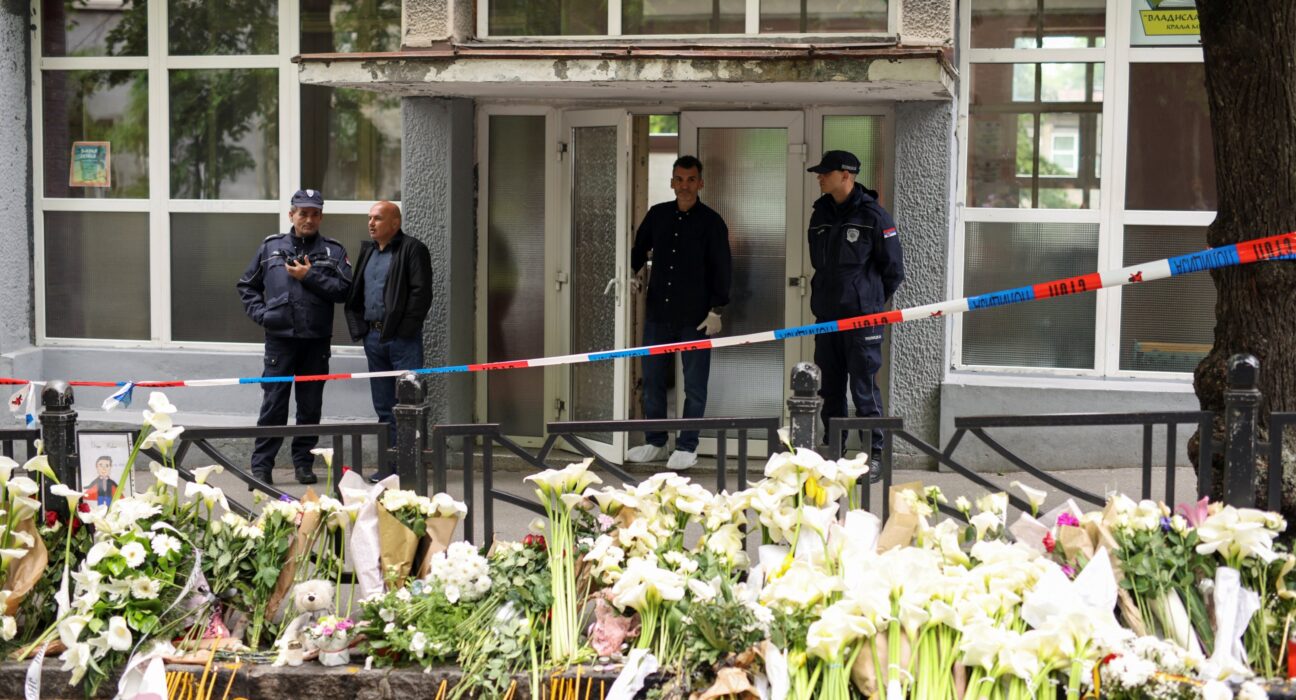Student-led protesters in Serbia are making their voices heard loud and clear, demanding snap elections to challenge a government they accuse of corruption and brutality. What started as a call for change has now evolved into a full-fledged movement, with roadblocks becoming the physical manifestation of their discontent.
The streets of various towns and cities in Serbia have turned into battlegrounds as protesters set up roadblocks, disrupting normalcy and challenging the status quo. The cat-and-mouse game between demonstrators and law enforcement escalated when dozens of protesters were arrested during recent protests.
As barriers went up at major intersections in Belgrade, the heart of the unrest, images of defiance filled social media feeds. Riot police dismantled some blockades while plainclothes officers lurked in the background, ready to quell any signs of resistance.
In a bid to intensify their pressure on the authorities, student organizers urged for a “total blockade
” across multiple cities. Their call-to-action extended beyond students to include members of the public, farmers, taxi drivers, bikers, and even war veterans. It was a united front against what they perceive as an oppressive regime.
With garbage bins serving as makeshift barricades on roads once bustling with traffic, protesters shared messages urging caution and solidarity among fellow demonstrators. “
Do not engage in physical or verbal conflicts,” echoed across online platforms as they strategized on how to maintain momentum without escalating tensions.
The roots of these protests trace back to a rally held in Belgrade following a tragic incident at Novi Sad railway station last year. Since then, student-led movements have gained traction through occupations of university buildings and relentless demonstrations that culminated in the recent roadblock actions.
Interior Minister Ivica Dacic tried to assure that police interventions were focused on maintaining essential routes open while allowing peaceful gatherings at non-crucial sites. Despite his claims that law enforcement acted with restraint, reports emerged detailing arrests made during clashes between protesters and police forces.
Drama students found themselves at the forefront of these confrontations after being detained for blocking streets adjacent to educational institutions. Allegations of police misconduct surfaced as lawyers spoke out about excessive use of force leading to unnecessary injuries among those taken into custody.
Academics also faced repercussions for their involvement in the protests, with professors like Stevan Filipovic being temporarily detained before facing charges related to traffic violations. The dean of Faculty of Dramatic Arts condemned these arbitrary detentions highlighting instances where individuals were held without justification only to be released later without formal charges.
Evenings saw additional expressions of dissent against alleged police brutality further fueling public outrage over perceived heavy-handed tactics employed by law enforcement officials during previous crackdowns on protest gatherings near educational facilities resulting in multiple casualties and detentions.
These protests are not just about roadblocks or arrests; they symbolize a larger struggle for accountability,
transparency
and democracy within Serbia’s political landscape.
Experts warn that continued suppression could lead to further escalation,
posing
a risk not only
to public safety but also
to long-term stability.
The unfolding events have captured both national attention,
prompting debates around civil liberties,
law enforcement conduct,
and governmental responsiveness.
As each day passes,
the chants grow louder,
the resolve deepens,
and the struggle for change persists.
Serbia stands at a crossroads where its future hinges on how it navigates through this period
of unrest
while balancing competing interests
and demands from its citizens.

